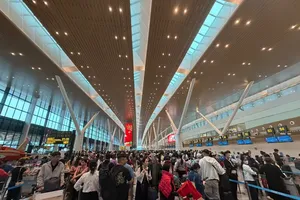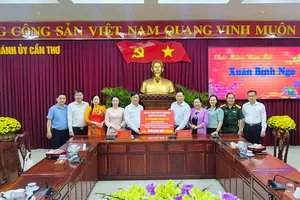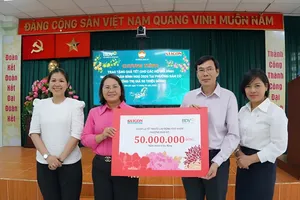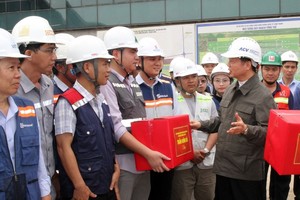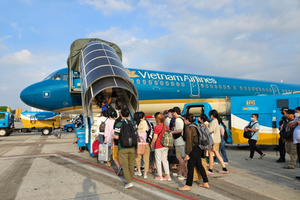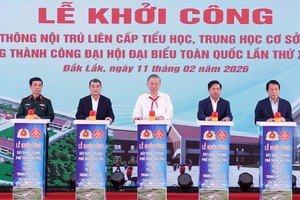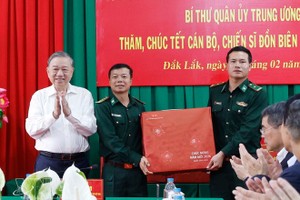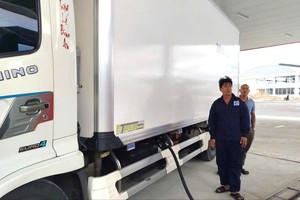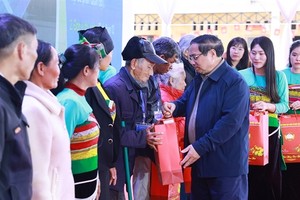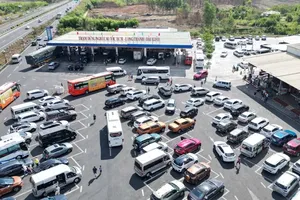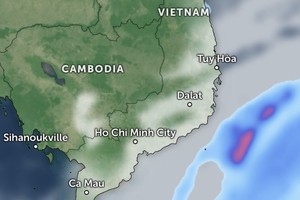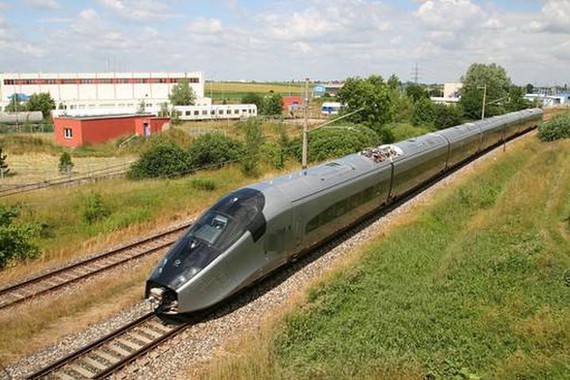 Ho Chi Minh City - Can Tho express railway project will create a breakthrough for inter-regional development.
Ho Chi Minh City - Can Tho express railway project will create a breakthrough for inter-regional development.
The goods and passengers transportation in the Mekong Delta is mainly performed by road, only a part of waterways and aviation. However, the rate of newly- built roads in the region is very low compared to many places.
The lack of large volume transport means made the high logistics costs for the Vietnamese agricultural and aquatic products. With an important role of the Southern region's economic hub, Ho Chi Minh City is hugely affected by the above-mentioned limitation. According to the Ministry of Transport, waterway goods transport in Ho Chi Minh City and the Mekong Delta only serves for slow shipping goods such as rice, fertilizer, building materials, gasoline. As for fresh goods such as seafood and fruits, they are only performed by refrigerator trucks.
Road freight has actually played a significant role in regional economic development, accounting for over 70 percent of the whole region's transportation needs and always overloaded.
According to the latest updated data from the Ministry of Industry and Trade, Vietnam's logistics costs account for about 20 percent of Gross Domestic Product (GDP) while global GDP’s average reaches about 10 percent. Of which, transportation costs account for nearly 60 percent of the total logistics costs. Therefore, mass transport development in the Mekong Delta will contribute to reducing logistics costs and increasing competitiveness for Vietnamese goods.
Professor Ha Ngoc Truong, Vice Chairman of the HCMC Port and Bridge Association, who is one of the experts involved in the study of the above project, said that the Ho Chi Minh City - Can Tho express railway project is designed with its maximum speed of 200 kilometers an hour and 120 kilometers per hour for passenger and cargo transports respectively. With the speed, people in the Mekong Delta region can arrive in Ho Chi Minh City to work and return home on the same day, contributing to reducing population concentration in the city.
The investment capital of around US$10 billion, including US$5 billion of the railway construction cost is one of the biggest obstacles to implement the project.
According to the latest updated data from the Ministry of Industry and Trade, Vietnam's logistics costs account for about 20 percent of Gross Domestic Product (GDP) while global GDP’s average reaches about 10 percent. Of which, transportation costs account for nearly 60 percent of the total logistics costs. Therefore, mass transport development in the Mekong Delta will contribute to reducing logistics costs and increasing competitiveness for Vietnamese goods.
Professor Ha Ngoc Truong, Vice Chairman of the HCMC Port and Bridge Association, who is one of the experts involved in the study of the above project, said that the Ho Chi Minh City - Can Tho express railway project is designed with its maximum speed of 200 kilometers an hour and 120 kilometers per hour for passenger and cargo transports respectively. With the speed, people in the Mekong Delta region can arrive in Ho Chi Minh City to work and return home on the same day, contributing to reducing population concentration in the city.
The investment capital of around US$10 billion, including US$5 billion of the railway construction cost is one of the biggest obstacles to implement the project.
With the approved design, the 135-kilometer-long rail route will run parallelly to the right of the HCMC-Trung Luong-My Thuan-Can Tho Expressway, traveling through four localities of Ho Chi Minh City, Long An, Tien Giang and Can Tho.
Many experts highly appreciated the importance of this project because it is not only a key transport route along with the formation of urban centers and passenger terminals along the rail route but also a driving force to promote socio-economic development of the Mekong Delta.
Many experts highly appreciated the importance of this project because it is not only a key transport route along with the formation of urban centers and passenger terminals along the rail route but also a driving force to promote socio-economic development of the Mekong Delta.





